Java is one of the most famous and favored languages by computer programmers. Although easier language like Python is becoming common, due to the availability of resources and libraries, Java is still preferred by many developers.
Developing a Java code for a program or project is much easier with an IDE or Integrated Development Environment. Apart from code editing, these can be used for building Java applications, testing, debugging, code inspections, and code assistance.

They offer the environment for visual GUI builder and code editor, Java, Maven build tools and much more. Here are Top 10 Offline Java Compilers. Most of them are also perfect to use when working with many other languages such as PHP, C or C++.
NetBeans is an open source integrated environment and a widely used compiler by many of the programmers. NetBeans extends its support to all Java application types including Java SE, JavaFX, Java ME, web, EJB and even mobile applications. Its modular design enables developers to extend its functionality with plugins.
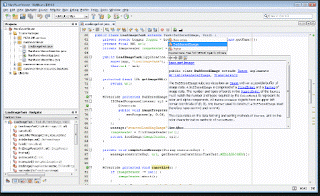
NetBeans can be used for other compiling languages like C/C++ and also to program with scripting languages like PHP. It runs on all popular OS platforms, Microsoft Windows, Mac OS X, Linux, Solaris comprehending the platform independence of JVM.
Eclipse is yet another IDE for developers which is mostly written in Java. Eclipse has brilliant features such as integration with Maven, Mylyn, XML editor, Git client, CVS client, PyDev. It also comes with base workspace and an extensible plug-in system so that you can customize the IDE according to your developer needs.
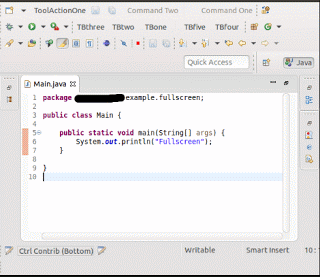
Eclipse supports a lot of other languages such as C, C++, JavaScript, Perl, PHP, Prolog, Python, R, Ruby so that you can work on projects that on codes in different languages. Eclipse is available for Windows, Mac OS X, and Linux.
InterlliJ IDEA is an IDE, which is suitable for programmers looking for Android development. It comes in two editions, the Community Edition which is well suited for Java, Scala, and Android development.
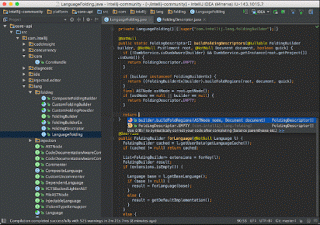
The Ultimate Edition has all other features which are absent in the Community Edition and can be used for the web, mobile and enterprise development. It has SQL tools along with support for JavaScript, TypeScript, Java EE, Spring, GWT, Vaadin, Play, Grails, and other Frameworks.
Primarily designed for Android Development, Android Studio is a product from the Google developers. It is the official IDE for Android and comes with proper coding, editing, and debugging features. Android Studio comes with Pro Guard and app-signing capabilities with built-in support for Google Cloud platform. The projects can be used with Java Development Kit.
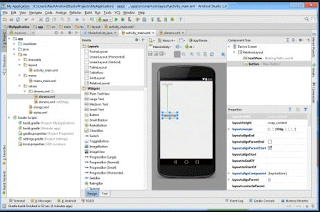
It also integrates with version control tools, such as GitHub and Subversion, to keep your team in sync with a project and build changes. You can also import projects from GitHub and right away work on it. There are many readily usable templates in Android Studio that eases up the work for developers.
Although developed as a standalone product for all operating systems, Enide Studio now generates Tool Suite for Node.js, JavaScript, and Java Development. It is available also from the Eclipse Plugin store.
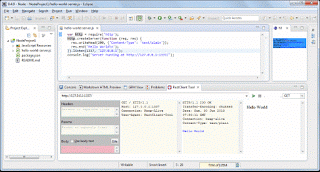
It has some features such as NPM support, support for GitHub and many other plugins. With syntax highlighting and correction suggestions, coding is faster and easier in Enide Studio.
BlueJ is a Java Development Environment for beginners. It is useful for educational purposes and small-scale programming and application development. It has a simple interface where objects can be creatively integrated and tested. It runs on Windows, Mac OS X, and Linux platforms.
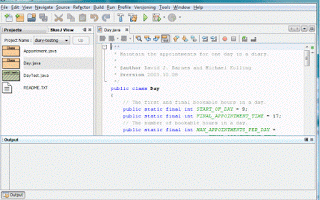
You can also run it on a USB without installation. It works as a graphical shell/REPL for Java meaning that Java expressions and parameters can be passed and invoked without compiling.
jEdit works on Windows, Linux, and Mac OS X platforms. It comes with some excellent features such as syntax highlighting for over 200 languages and an extensible plugin architecture with many macros and plugins.
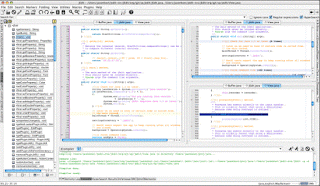
It has many file management functions such as support for over 160 character encoding and multiple data usage simultaneously. Many source code editing options and customization are possible with jEdit.
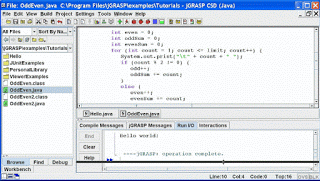
jGrasp is a lightweight environment for software visualizations. It produces Control Structure Diagrams for languages such as Java, C++, and Complexity Profile Graphs. It runs on Windows, Mac OS and Linux. Tutorials about the features of jGrasp are available for beginners.
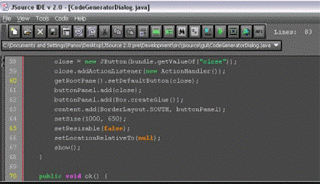
jSource is a lightweight but powerful Java IDE written in Swing. It has good creating, editing, compilation and running tools for developers. It also has syntax highlighting for other languages as well. It has limited features compared to other IDEs but is still an option for systems with limited resources or hardware support.
jDeveloper comes from the Oracle Corporation and is an IDEreleased as freeware. It offers various features for developers dealing with Java, XML, SQL and PL/SQL, HTML, JavaScript, BPEL, and PHP. jDeveloper is ideal for coding, debugging, optimization with extended features for profiling and deploying.
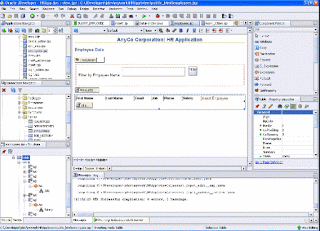
jDeveloper integrates with the Oracle Application Development Framework- an end-to-end Java EE-based framework which further makes the development process easier. jDeveloper comes in 3 editions, which include the Java Edition, J2EE Edition, and Studio Edition.
Most of these IDEs make you free from the conventional methods of coding where the programmer has to enter each and every line of the code word by word. Using compilers such as NetBeans or Eclipse, the IDE highlights the errors and comes with suggestions.
You can also use a lot of shortcuts and auto fill options that save the work for hours. With many libraries available and most of which are supported by the IDEs, programming is simplified than ever before. For Android development, Android Studio is the best choice as it can also be used to work with Java to an extent.
Many function templates are also available in the IDE or can be imported with ease from online sources as they all run smoothly in the IDE. It doesn't matter if you are a Linux, Mac or Windows user, working with an IDE can make significant progress in the programmer that you are.
